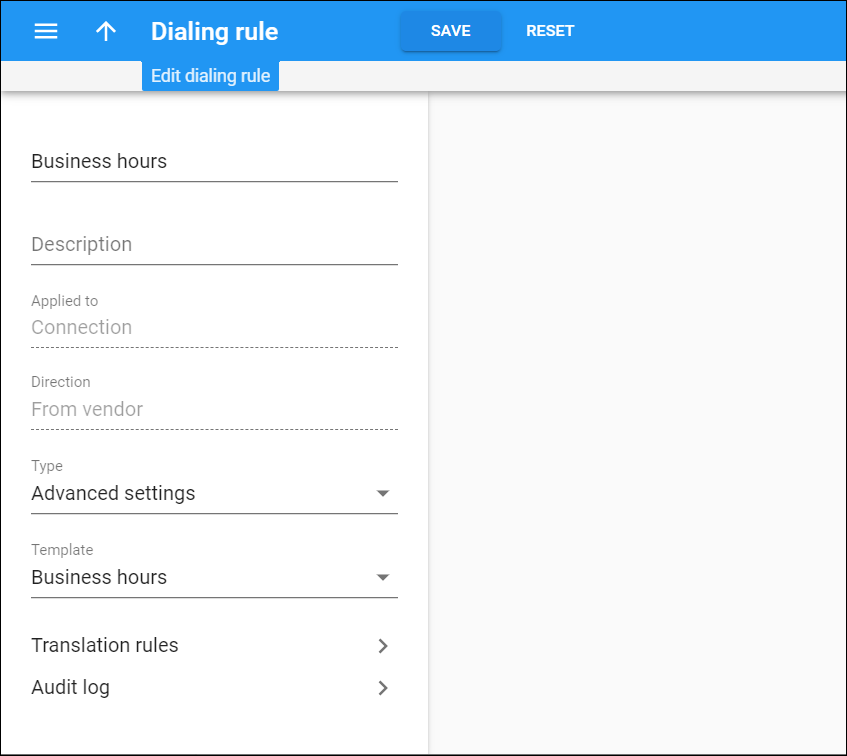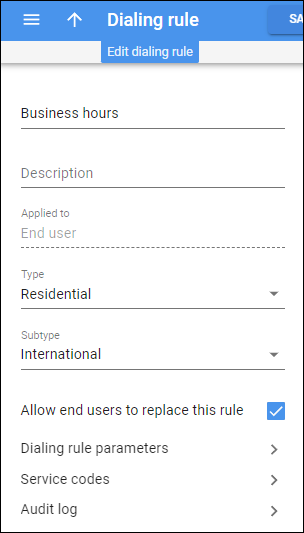View or change general information about a dialing rule here. Use the navigation links to open and configure additional options.
To save your changes, click Save.
Name
This is the descriptive name for the dialing rule.
Description
This is additional information about the dialing rule.
Applied to
This indicates which entity this dialing rule applies to. This field is read-only.
Direction
For dialing rules that apply to connections, this indicates whether calls leave from or arrive to your network via this connection. This field is read-only.
Type
This is the type of dialing rule. In dialing rules for end users, the type defines which customers use them. In dialing rules for vendor connections, the type defines the complexity of use cases for number translation.
Template
For your convenience, there are several templates with sample settings. You can use them or modify them to create your own dialing rules for vendor connections.
Subtype
Dialing rules for end users can have subtypes. Subtypes help you configure dialing rules for North American customers.
-
North America – these are the dialing rules for North American customers. The configuration includes an option for setting customers’ local number length to either 7 or 10 digits.
-
International – these are the dialing rules for all other customers.
Allow end users to replace this rule
This option is available only for dialing rules that are applied to the End user. It is enabled by default and allows end users to replace the dialing rule on their self-care portal (Cloud PBX > Dialing rules tab). If you want to prohibit end users from replacing the dialing rule that is already applied to them, clear the checkbox.
Dialing rule parameters
The Dialing rule parameters link leads you to a set of panels where you can configure your own rules or use supplied sample templates.
Service codes
The Service codes link opens a panel where you can configure which codes your customers will dial to access cloud PBX features and their own voicemail boxes.
Translation rules
The Translation rules link in dialing rules for end users opens a panel where you can specify a translation instruction as a Perl regular expression for the Custom dialing rule type. Thus, you can create more complex dialing rules for end users.
The Translation rule link in dialing rules for connections opens a panel where you can set up rules to translate numbers from/to a vendor-specific format (e.g., strip the tech prefix from the number).
Audit log
The Audit log link opens a panel where you can track and browse changes made to this dialing rule.




